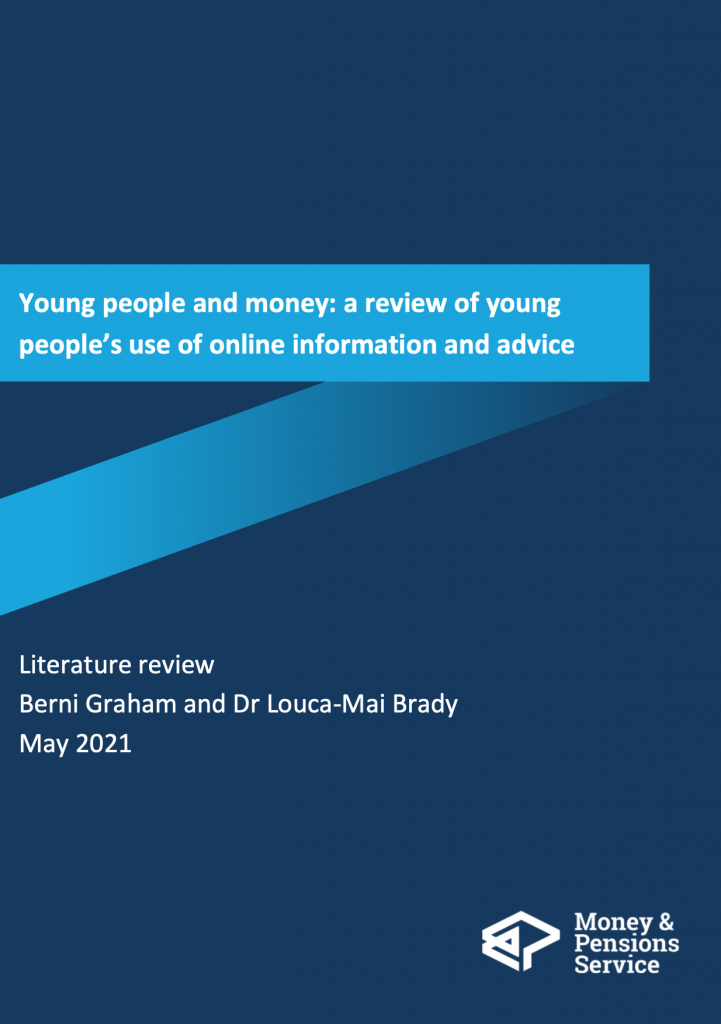Young people and money: a review of young people’s use of online information and advice
Existing evidence shows that when seeking help with money questions offline, young people value one-to-one advice from trusted intermediaries. However, online, young people use multiple platforms to seek money guidance. The internet appeals to young people as a source of advice. Yet, despite its many advantages, the online world can be overwhelming and confusing, and locating reliable, trustworthy advice is a major challenge.

A key factor in this is that, amid growing expectations to manage their finances online, young people often lack the requisite financial and digital skills to do so. The evidence suggests that they often do not know where to start looking, or how to make sense of the mass of information available online. Most were found to search randomly, use generalist search terms and engines.
Even if they find reasonable advice, they may lack the skills, understanding, knowledge and experience to apply the information provided. These challenges also come in a context where the information online is either commercially driven or presumes everyone is an informed consumer.
The UK Strategy for Financial Wellbeing sets a goal to ensure that two million more children and young people growing up in the UK receive a meaningful financial education by 2030.
To help support the strategy’s vision of a financially healthy nation, the Money and Pensions Service (MaPS) has undertaken a review to consider a young person’s user journey when seeking guidance on money-related issues.
It explores where young people look for help on money-related issues and how they engage with that information, particularly online – and how this impacts on their decision making and financial behaviour.
It highlights gaps in the understanding of young people’s needs when accessing help with money and includes key learnings for how online money guidance can work best for young people.
